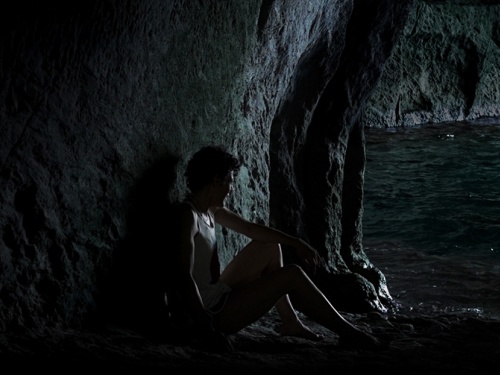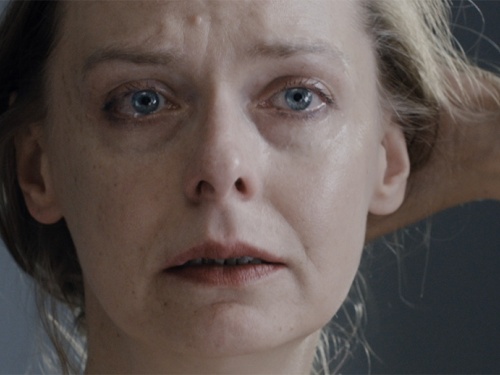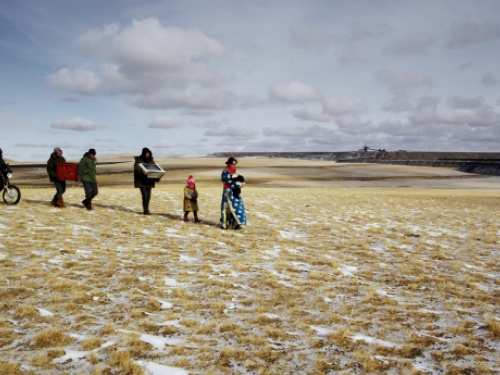Frames of Representation: Working in the Digital Present
Writer and curator Andréa Picard discusses Eduardo Williams's film The Human Surge, screening on 23 April as part of the Frames of Representation film festival.
It is often said that cinema is there to guide us, to help us contend with an increasingly inscrutable world. But what of its uncanny ability to lead us into unknown territory – to advocate being lost, vulnerable and resoundingly human? Astonishing and category-defying, The Human Surge is Argentine filmmaker Eduardo Williams’s debut feature. It begins abruptly and plunges us into a world hereto unintroduced. In disorienting mid-action and murky darkness, we follow a young suburban protagonist as he loses his job and gets crafty with his money-making plans; thereafter, the film’s grainy textures and extraordinarily deft handheld camera depart on a multi-country trip that blends naturalism with oblique fantasy.
Compelling and formally innovative, The Human Surge explores what it means to live and work in the digital present. Taking us into the lives of young people in different geographical locations, it offers a perspective that is at once intimate and global. Eschewing quick narrative links and easy conclusions, the film moves slowly, paying attention to the details of its subjects’ lives, the rhythms of their days. Throughout, it moves between countries and cameras: Mozambique is shot on a pocket Blackmagic, Argentina on 16mm film. Opening up new networks and points of contact between different stories, it meditates on the possibilities—and impossibilities—of connection, asking: what new forms of intimacy are possible in the contemporary moment?
It offers a perspective that is at once intimate and global.
Evoking aspects of ethno-fiction, it meanders and maps out a physical and geographic network that is both in concert with and in contrast to our digital economy. Structured in three parts (with inventive relays between each section, one involving sexcams and another an equally mesmerising ant hole), the film thrusts us into the lives of mainly young men in disparate parts of the world, who are bored by their jobs and seeking fulfilment elsewhere. Underlining both the commonality and diversity of these characters' experiences, Williams hints at profound political and philosophical questions while remaining in a fluid mode of observation, mutual relation and open adventure.
The intimate spaces of everyday life open onto some of the greatest paradoxes of contemporary existence as he creates a multi-faceted meditation on what we do to make money, how we spend our time, how we measure progress, success and leisure and how ultimately nothing is static in this world of wild weather patterns, internet connectivity, and globalized trade, travel and exchange. As the quotidian consistently melds with the strange, The Human Surge reveals how uncertainty can yield its own sources of beauty and small-scale resistance by charting the rhythms of autonomy over automatism.
Uncertainty can yield its own sources of beauty and small-scale resistance by charting the rhythms of autonomy over automatism.
With his peripatetic camera(s) traversing the globe—shooting on 16mm in Buenos Aires, a Blackmagic pocket camera (subsequently reshot in Super 16 from the screen of a computer) in Maputo, Mozambique, and the RED camera on the Philippine island province of Bohol—Williams has created a film that is both winding and wondrous, its sinewy detours through urban and natural jungles seeped in sensual contours. The Human Surge teases as it searches for meaningful happenstance (and its characters chase free wifi) amid the seemingly banal, and commits to its own (at times extemporized) exploration, advocating for cinematic freedom while doing so. Propelled by its engagement, free spirit and innate musicality, the film submits to a fascinating form of human expression, whose flows of diverse, global exchange have become vital in an increasingly dystopian present.
Have we reached the point where being lost also allows us to feel alive? There is an innocent romanticism (and unassuming humanism, empathy and generosity) coursing through the film – one that both reveals and revokes the promise of its grand title. ■
This article is posted in: Articles, Film
Tagged with: Frames of Representation, Documentary Cinema, Film, World Cinema, Documentary, FoR17, Technology









